Amanda is back at CBS: “I have had to do meetings in the bathroom”
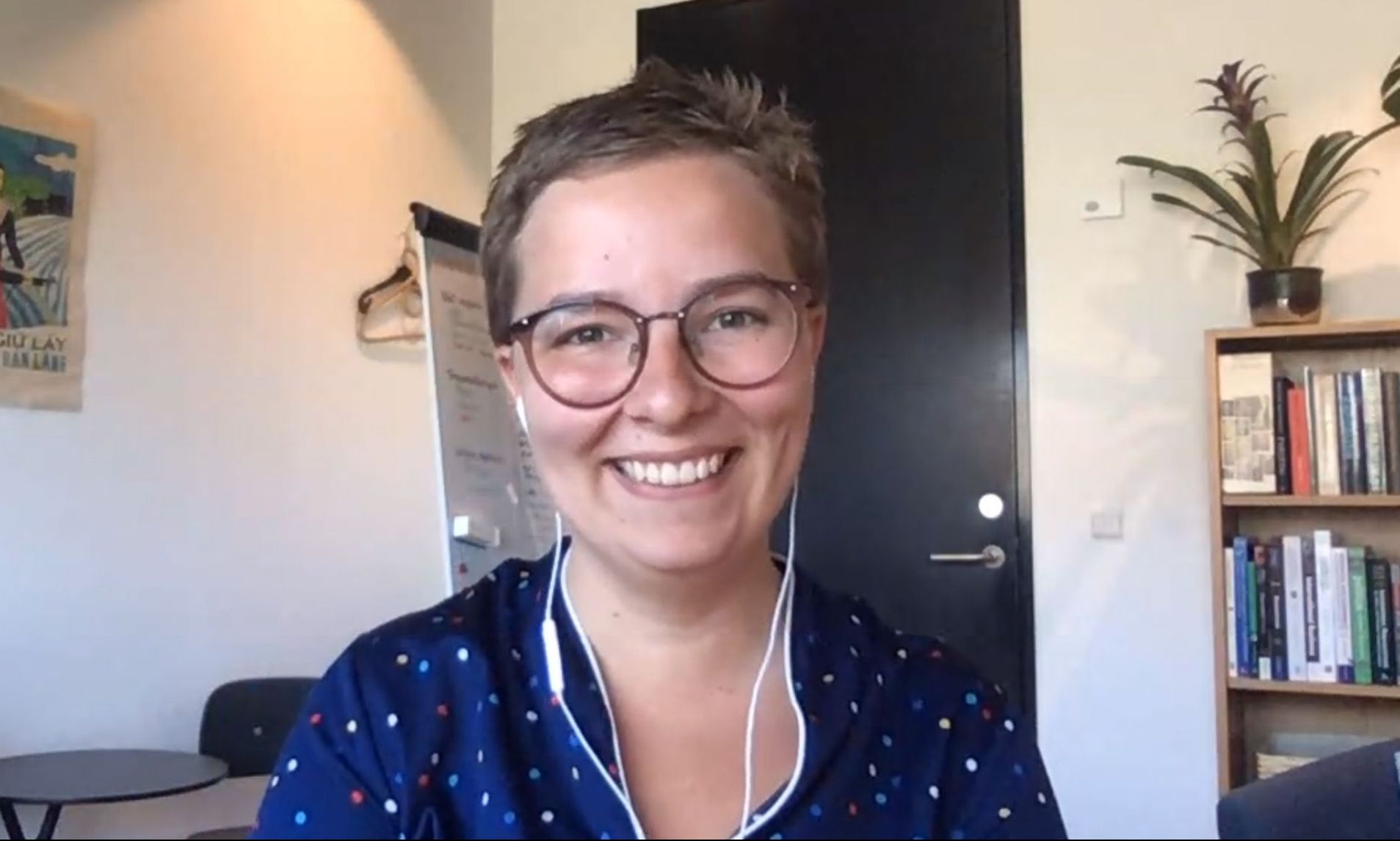
PhD Fellow Amanda Bille is one of few researchers who has been allowed back on campus. And it's a great relief. (Photo/screenshot from Teams: Anne M. Lykkegaard)
From a one-room apartment shared with her boyfriend, PhD Fellow Amanda Bille has attended online supervision sessions on the balcony, carefully coordinated to avoid the neighboring school's recess, and has waved goodbye to the PhD project of her “dreams”. Now, back at CBS, she says she has done more than she would have accomplished in a whole week at home.
“Only two out of my eight plants died while I was away. I expected to walk into a plant cemetery,” says Amanda Bille, PhD Fellow at the Department of Operations Management at CBS.
Just last week, she and the other PhD Fellows at CBS were allowed back on campus. And for Amanda Bille, it is a thrill, to say the least.
“It’s lovely to be back. Just getting out of the apartment is worth its weight in gold, as it’s been like living in a meeting room,” she says.
Amanda Bille has been employed as a PhD Fellow for about nine months, and before the lockdown, she had built up a routine of checking in with her supervisor almost every day, and she often discussed matters with the other PhD Fellows, who were just a few offices away. Then Denmark locked down.
Amanda Bille lives with her boyfriend in a one-room apartment in Vesterbro. An apartment that is “great” to live in, but “not that great” to work in.
“As my boyfriend is studying law, he’s also at home a lot, so our shared calendar, which was usually for social events, turned into a meeting schedule, so our meetings didn’t overlap,” she says and continues:
“However, on one occasion, I had to do a meeting in the bathroom, and I have done a couple of meetings on the balcony, timed to avoid the neighboring school’s recess. On top of that, our neighbor has been renovating their bathroom, so it has been, to put it mildly, uphill.”
Amanda Bille and eight other PhD Fellows from her department are now back at CBS, and even though she has been there for only three days, the results are showing.
“I’ve done more in three days than I would have accomplished in a week at home. And it’s just nice to go to work, work, and go home and relax. At home, work and spare time got sort of blurry and mixed together,” she says and continues:
“Especially, the ability to discuss everyday issues related to teaching and research with the other PhD Fellows again has been a great gift.”
The meltdown
As a PhD Fellow, Amanda Bille submitted a research design and process as part of landing the position at CBS. Specifically, Amanda Bille wanted to investigate the tea supply chain – a supply chain that has barely changed for close to a hundred years. She aimed to explore the different steps, from leaf picking, to the end product found on supermarket shelves, with the ultimate goal of seeing how the supply chain can become more transparent and ethical.
I guess the feeling I have right now resembles heartbreak. I was looking forward to doing this project so much, and I was in love with the concept
Amanda Bille
In order to do so, she had contacted tea farmers in Kenya and was planning to visit them later this summer just after the peak of tea-leaf harvesting time.
“The week Mette Frederiksen announced the lockdown, I had started sending out emails to set up appointments with people in Kenya. I hadn’t bought the tickets, but I was just about to plot in dates for the field trip. During the first couple of weeks, I had on-going discussions with my supervisors, who told me that everything would be alright, but alternatively, I could always postpone the trip a few months,” she says.
Four weeks into the lockdown, everything changed.
“It was evident that my research wouldn’t come through as planned, and I had a big meltdown. It was a huge blow,” she says and continues:
“Not only was I at home, alone, my research dream also collapsed. If it had happened while I was still at CBS, I could at least have talked to my colleagues and received their support, that would have made the meltdown somewhat smaller.”
Feels like a heartbreak
Eventually, Amanda Bille had to put a large part of her planned research project behind her. At first, she hoped to keep the project framework and just adjust one or two of the scientific articles she expected to produce. But somehow, that made little sense, when she could not visit Kenya or other tea-producing nations.
“The developing countries are likely to be hit by Coronavirus later, and even if I had waited a year, I don’t think it would have been realistic to go there, and if I wait another year, I’ll have only three months left of my PhD,” she says.
Instead, Amanda Bille has changed her project framework and set up a new “corona friendly” research design, where it won’t be necessary for her to collect data with physical interaction within the next year. The project has been reframed from being about tea supply chains specifically to presenting a political approach to supply chain management.
Approximately 20 percent of her work so far “has gone out of the window”, and she hopes she’ll be able to get her work done within the time frame. But the long-term impact of the corona is still difficult to estimate: “Right now it seems like I still have enough time, but honestly I am not sure.”
And although the new project is coming along, giving up on the previous one isn’t an easy task.
“I guess the feeling I have right now resembles heartbreak. I was looking forward to doing this project so much, and I was in love with the concept. I was going to Kenya, I had lined up a plan for who to contact and how. So when it all just disappears before me it takes some time to recover. The new research design is really cool, and I’m sure that at some point, I will fall in love with it,” she says and explains that the first thing she did when she returned to her office was to wipe her previous plans off the whiteboards.
Now, she only needs to throw out one paper with the plans for Kenya.
“And I’ll do that today,” she says.



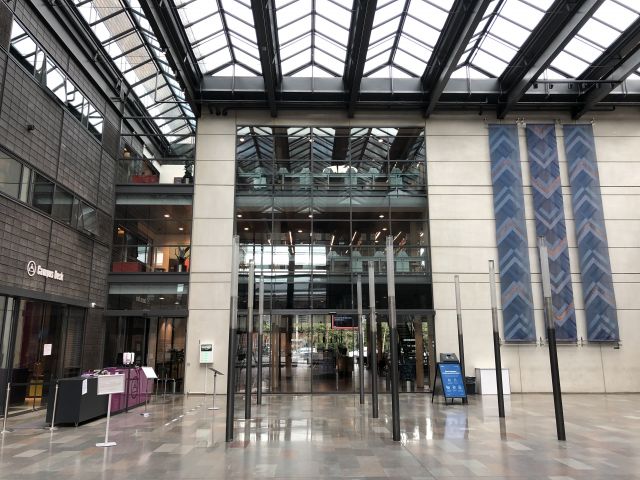
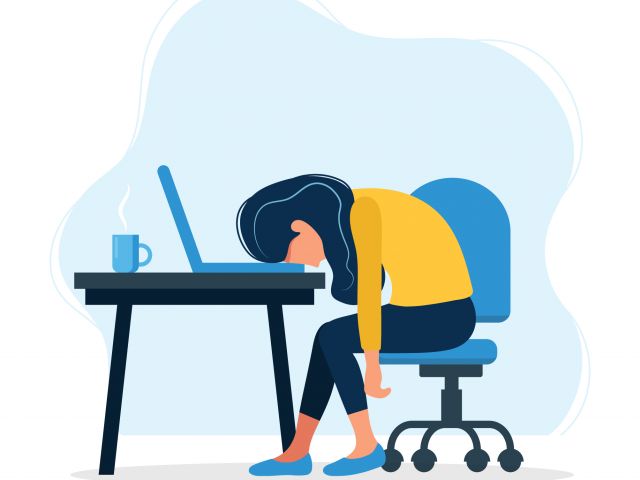
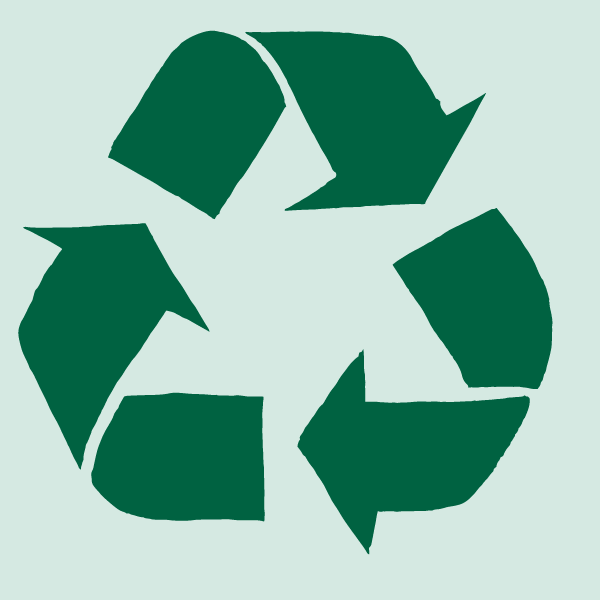
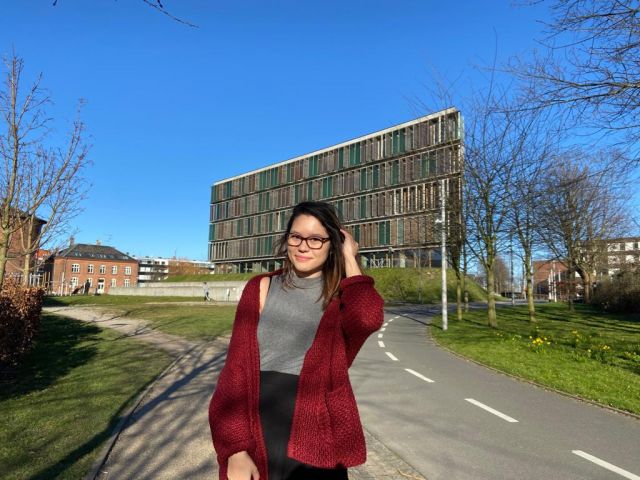

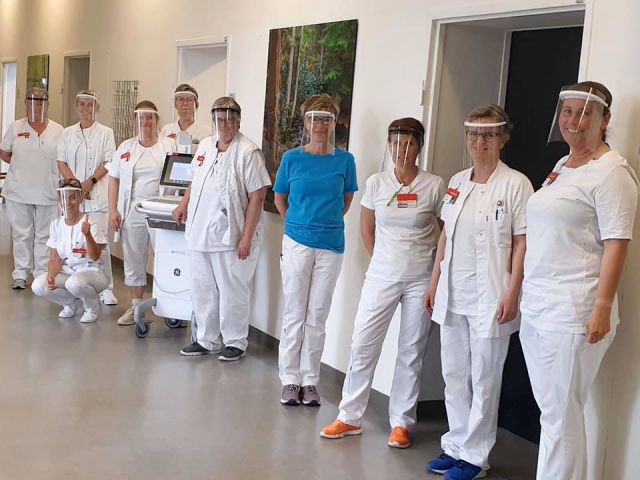
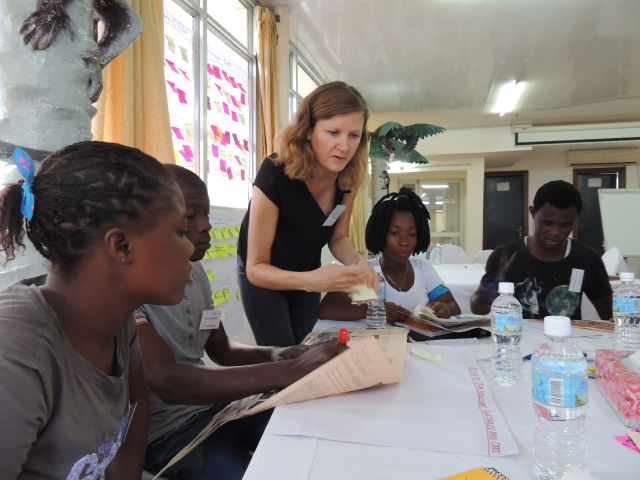




























































































































Comments